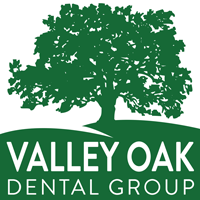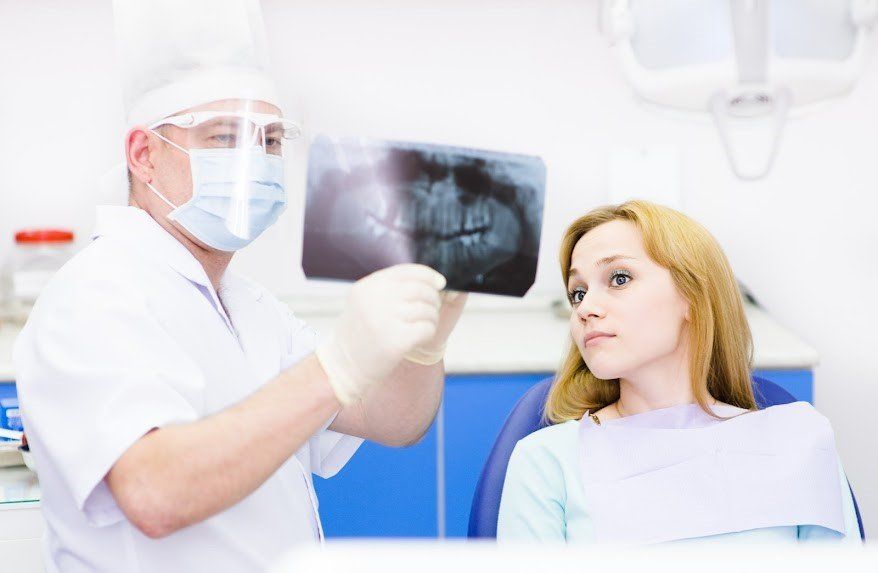Valley Oak Dental Group
Your teeth feel more sensitive than usual lately, especially when you eat or drink something cold. You suspect that you might have another cavity, but can’t understand how-after all, you brush and floss twice a day, and you even use mouthwash faithfully. Why are you getting so many cavities when you take such good care of your teeth?
What many people don’t realize is that tooth decay is caused by more than just built-up plaque or food-borne bacteria. One major culprit of severe tooth decay and other oral health issues is acid reflux disease.
If you never experience heartburn, you might assume you don’t have acid reflux disease. But even if you don’t experience chest pain after eating, you may have other acid reflux symptoms. Read more below to find out if you may need to speak with a doctor and dentist about acid reflux disease.
What Is Acid Reflux Disease?
Acid reflux disease is relatively common among Americans-in fact, the US Department of Health and Human Services estimates that at least 7 million Americans suffer from this disease. But what is acid reflux?
A little anatomy lesson is needed to understand acid reflux disease. When you swallow food, your stomach produces hydrochloric acid, which helps break down the food so that it can be absorbed into your body and give you the energy and nutrition you need.
Acid is hard on the stomach, of course, so the lining of your stomach simultaneously creates mucus, which protects your stomach. Your throat does not create this protective mucus, but it has another defense: a ring of tissue in your lower esophagus. This ring opens to let food into the stomach and closes before stomach acid can splash up into your soft throat.
When you have acid reflux, however, your esophagus doesn’t close quickly enough, and stomach acid damages your throat every time you eat.
What Are the Symptoms of Acid Reflux?
Acid reflux disease is no laughing matter, especially when you consider the symptoms. Acid on flesh doesn’t feel very good, and your throat may be experiencing that kind of pain every time you eat a meal.
Sometimes, that pain is revealed in the form of heartburn: that burning discomfort you feel in your chest after eating. Other symptoms may include:
- Bloating
- Sour burping and regurgitation
- Constant hiccups
- Dysphagia, a reaction that feels like there is food stuck in your throat
- A chronic sore throat or constant cough Bloody stools or vomiting
No one wants to live with symptoms like that, and you don’t have to. A gastroenterologist can treat your acid reflux disease.
But if you’re not experiencing any of these symptoms, why should you worry about acid reflux? Your dentist might have an opinion about that, and for good reason. Acid reflux doesn’t just damage your throat and your stomach-it also eats away at your smile.
What Are the Dental Implications?
The stomach acid that rushes back into your throat has a pH level of 2.0, which is extremely acidic and chemically corrosive. The enamel on your teeth-that extra layer that protects the sensitive nerves in your teeth-has a pH level of 5.5. In other words, when stacked against stomach acid, dental enamel doesn’t stand a chance.
Once the enamel on your teeth has eroded away, you can’t get it back. And because enamel is the only thing protecting your teeth from bacteria, tooth decay and painful oral issues are often the result of acid reflux. In fact, aside from heartburn, rapid tooth decay is usually how dentists and doctors figure out that a patient has acid reflux.
Symptoms like tooth decay and heartburn don’t have to occur simultaneously for you to be certain that you have acid reflux. You may only experience heartburn, but don’t be fooled. Your teeth are also taking a lot of abuse from that splashing stomach acid as well.
What Can You Do About Acid Reflux?
If you suspect that you may suffer from acid reflux disease but don’t have any symptoms beyond tooth pain, the very first thing to do is contact your dentist or doctor with your suspicions. You dentist can inspect your teeth and throat, refer you to a gastroenterologist, and help you develop a dental plan that protects your teeth from further decay.
In this case, brushing your teeth frequently more may be a detriment, rather than a benefit, to your dental health. This is because tooth-brushing can work acid deeper into your teeth and destroy your enamel faster. If you have acid reflux disease, your dentist might advise you to take the following steps:
- Stop smoking immediately.
- Avoid acidic, spicy, and fried foods and eliminate dairy from your diet.
- Do not brush your teeth until about an hour after you’ve eaten. After you eat, rinse your mouth with water.
Your dentist will know how best to protect your teeth and repair any damage that your acid reflux may have caused. Don’t wait to seek treatment, and consult with your dentist and doctor as soon as possible if you think you may have this disease.
Share Post
Search Post
Recent Posts








